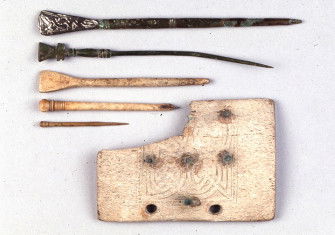Everyday Life for the Roman Schoolboy
Keith Hopkins takes us on a tour de force via original texts of the hopes, dreams, assumptions and frustrations of the Roman schoolboy.
The term, 'everyday life', poses a problem: whose everyday life? One obvious temptation is to identify with the rich, the powerful and the beautiful. Reading a history journal is our best chance of becoming, if only for a moment, Empress of Rome or a victorious Roman general, riding in a chariot among cheering crowds, dressed like Jupiter in a purple cloak thrown over a toga sewn with golden stars. But does anyone imagine themselves to be a slave, a slaughtered prisoner or a child? And yet the Roman child's experience served as his or her introduction to the Roman world. Perhaps it can serve as our introduction too.
Needless to say, what we have on offer is not the child's view, but the adult's view of what the child ought to be experiencing. It is an ancient source composed by different ancient schoolteachers for instructing schoolchildren, both boys and girls, in Latin and Greek. These texts were repeatedly revised over several centuries from the third century BC to the fourth century AD. Let me cite some illustrative excerpts:







